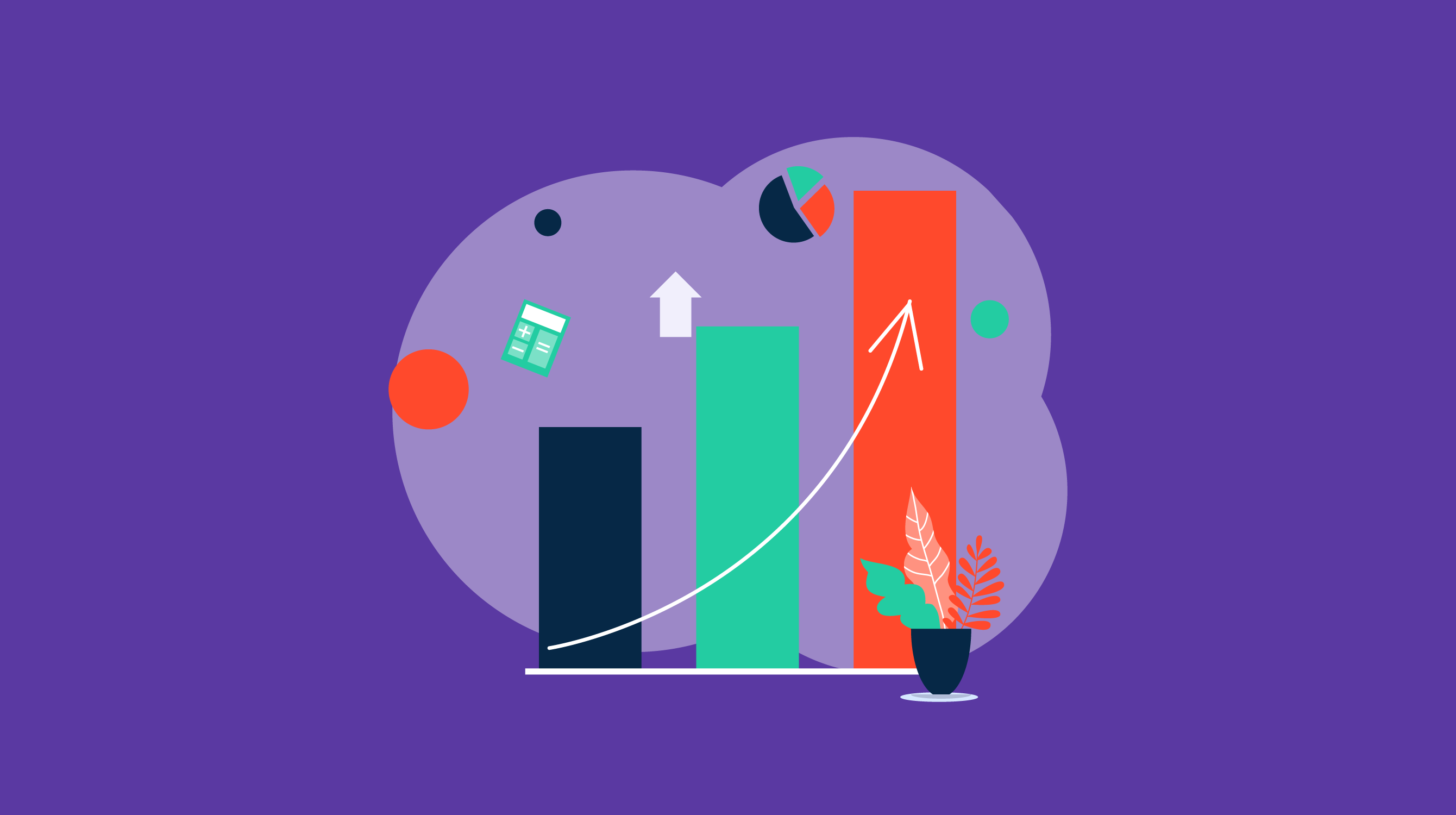What is business intelligence?
Business intelligence (BI) is a broad term encompassing various software and services that transform business data into actionable information. It helps provide visibility into a company’s data and is used to inform organization-wide decisions.
Processes within business intelligence include data mining, reporting, data analysis, data visualization, analytics, and more. These insights enable companies to make data-driven decisions to better support the business.
It’s common to turn to data visualization software to translate data and metrics into charts and graphs. Doing so helps companies track various metrics and key performance indicators (KPIs) to understand performance and goals better.
Basic elements of business intelligence
There are many ways businesses can gather and analyze data depending on the type of their business, unique needs, and data collection systems in place. All of the data should be looked at together for comprehensive business analysis. Below are some of the types of processes that are considered components of business intelligence:
- Data mining: Companies use data mining to transform raw data into useful information to make business decisions. This process focuses on analyzing data sets to identify patterns and trends. Many businesses turn to data mining software to compile and analyze their data sets.
- Reporting: Business intelligence teams prepare various reports to display business data in a digestible way.
- Data visualization: Like reporting, data visualization is the process of transforming data into a visual representation. Types of visualizations include charts, graphs, live data reports and dashboards, and tables.
- Analytics: Different types of analytics processes, including statistical analysis, process modeling, and predictive analytics, can all be used to generate business intelligence insights.
Benefits of business intelligence
Companies that leverage business intelligence processes experience many benefits. Some of these benefits include:
- Data-driven business decisions: Companies can use accurate and actionable insights from their data to drive business decisions. With business intelligence, real-time data is used to inform strategic decisions rather than waiting for data to be pulled or utilizing information in an old report.
- Organizational efficiency: Business intelligence offers a holistic view of an organization's operations. With a better idea of the organization, leaders can identify areas of improvement and increase efficiencies across the business.
- Connected company data sources: Various departments can adopt business intelligence practices. This allows departments to share their data more broadly and use it to gain insights and optimize cross-departmental functions.
Business intelligence best practices
Companies that implement business intelligence will likely see specific results that enable them to make stronger, data-driven decisions. Some general best practices should be followed to achieve the best results:
- Inform your organization and obtain buy-in. To maximize the success of your business intelligence efforts, it’s essential to get buy-in across the organization. BI depends upon your company’s data collection practices, so teams need to be in the know and onboard.
- Create a plan and start small. Implementing a business intelligence strategy is time-consuming and can be costly if new tools are needed to support the effort. It’s essential to create a plan and take small steps to make it as efficient as possible. Develop business requirements and goals for the strategy and work toward the goals in increments.
- Identify what data is needed. Organizations collect many data sets across departments and teams. The challenge is locating and gathering the data as it may be spread across different software systems and tools. Start small and focus on collecting accurate data from a few sources before moving to more advanced collection from predictive analytics.
Business intelligence vs. competitive intelligence
Business intelligence and competitive intelligence are slightly different but go hand-in-hand.
Business intelligence focuses on leveraging an organization’s internal data to make data-driven business decisions. In comparison, competitive intelligence is external research companies conduct to understand the industry and industry competitors. Competitive intelligence software can help organizations capture, analyze, and take action on their competitive landscape. Both types of intelligence can be used to inform business plans and strategic direction.

Alyssa Towns
Alyssa Towns works in communications and change management and is a freelance writer for G2. She mainly writes SaaS, productivity, and career-adjacent content. In her spare time, Alyssa is either enjoying a new restaurant with her husband, playing with her Bengal cats Yeti and Yowie, adventuring outdoors, or reading a book from her TBR list.





















